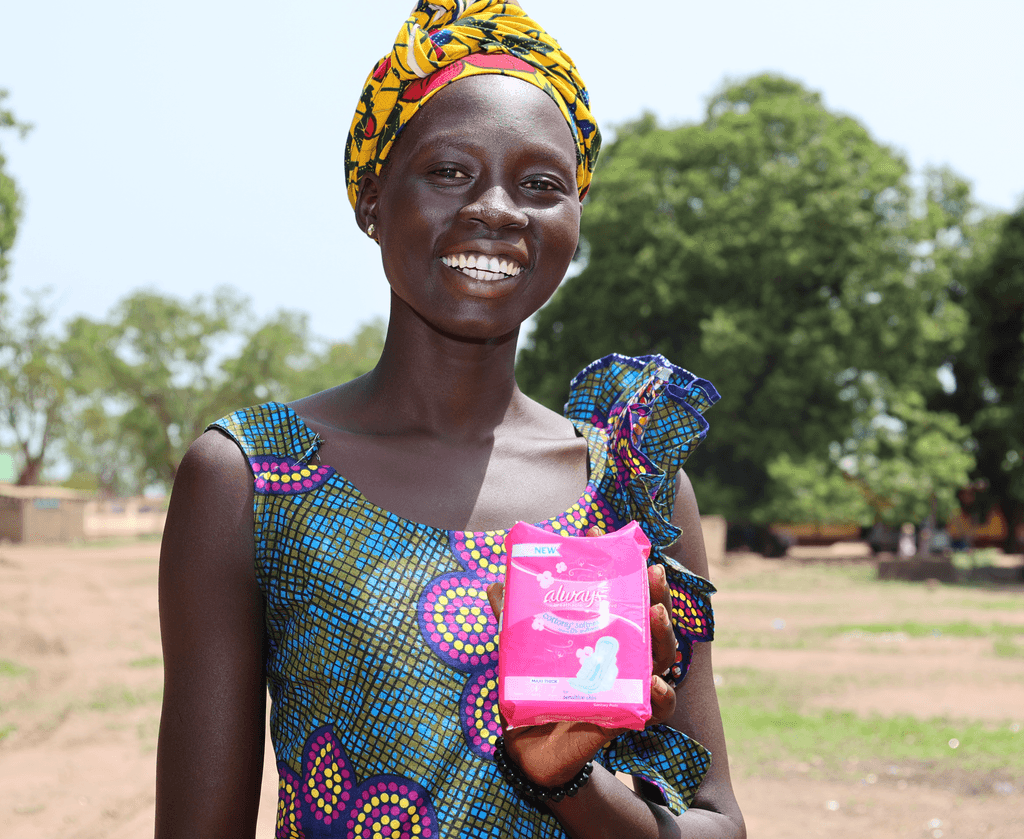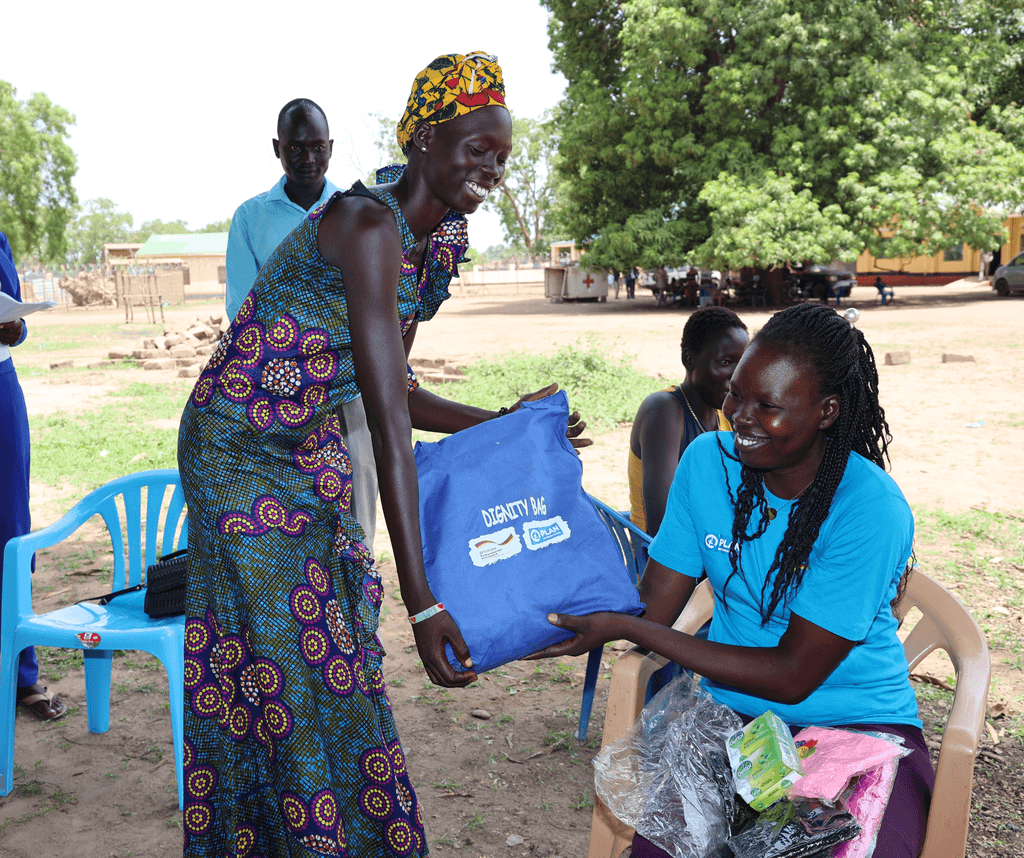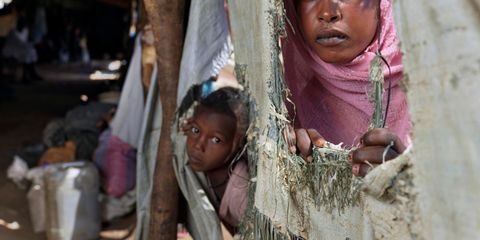Tabitha: Breaking period barriers, reclaiming her future
In Rumbek, South Sudan, 19-year-old Tabitha used to miss school every month—not because she didn’t want to learn, but because she lacked the supplies and support to manage her period.

Tabitha, now in Grade 8, used to miss up to 5 days of school each month due to lack of sanitary products.
“I used to sit in one place until my period ended. I had nothing to use. It was difficult,” she recalls.
For many girls in South Sudan, menstruation is more than a monthly challenge—it’s a barrier to education, confidence, and opportunity. Without access to sanitary products or accurate information, girls often face stigma, isolation, and missed school days.
Managing better with knowledge and resources
Tabitha decided to sign up for Plan International’s Adolescents for change project. An initiative that combined menstrual health support with education, community dialogue, and youth empowerment where she received a dignity kit containing reusable pads, soap and underwear.
“Now I feel free at school. I attend all my lessons and can walk freely during my period. I feel happy and empowered,” she says.
Tabitha also participated in sessions that provided practical knowledge about menstrual health, helping her and her peers manage their periods safely and with dignity.
“Now I feel free at school. I attend all my lessons and can walk freely during my period. I feel happy and empowered.”
Tabitha, 19

Driving change in her community
Tabitha’s experience is part of a broader shift supported by the Adolescents for Change project, which has reached over 51,000 people in Lakes State.
More than 8,000 girls and women have received dignity kits, contributing to improved school attendance and reduced stigma. Community leaders, including chiefs and religious figures, are also now advocating for girls’ rights and supporting access to sexual and reproductive health services.
In Lakes State, advocacy efforts under the project contributed to the enactment of a law banning early and forced marriages, an important step toward safeguarding girls’ futures.
Project in numbers
- Over 51,883 people were reached by the project, with 65% being female.
- Access to adolescent-friendly SRHR services rose from 18% to 82%.
- 3,015 GBV survivors were identified and supported.
- 62 abducted children were reintegrated into their families.
- 1,050 households, 59% female-headed, received cash assistance—shifting power dynamics and promoting financial independence for women.
Categories: Education, Sexual and reproductive health and rights
Tabitha: Breaking period barriers, reclaiming her future
22 July 2025Categories: Education, Sexual and reproductive health and rights

